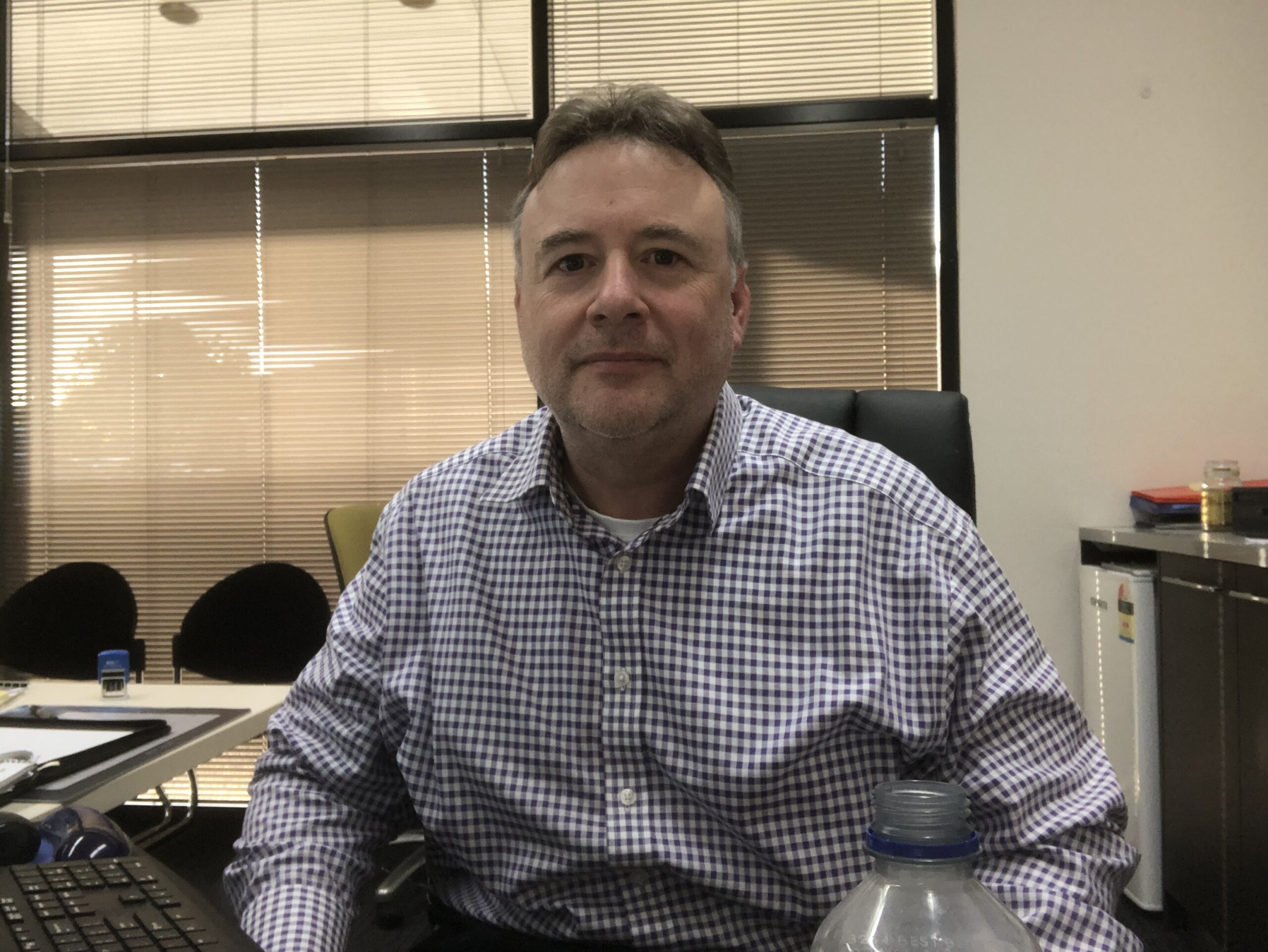
19 October 2020 |
Contemporary leadership during COVID-19 – an ECA alumni initiative
As the Coronavirus pandemic gripped the world, Tony Ward and ECA alumni colleagues established a leadership initiative focused on Leading through COVID-19. The initiative was a call to action for ECA alumni to not only apply leadership theory and analysis to the response to COVID-19 globally, but an opportunity to step up and take action locally.
Listen now to the seventh episode of Leaders Matter, featuring Tony Ward, Manager of the Western Districts Youth Justice Service Centre at the Department of Youth Justice.
ECA’s Alumni network enables leaders to undertake real-time, placed-based change work and grow a network of committed local leaders. To find out more or to suggest an alumni project, contact us.
The Leading through COVID-19 alumni initiative began from observation and speculation about how COVID-19 was emerging and being responded to by leaders around the world.
“We realised that this was a really good opportunity to be able to compare and contrast the leadership styles around the world,” says Tony. “We knew from history that some of the most effective leaders that led during a crisis, people like Winston Churchill, were well studied, but it was always done retrospectively.”
Tony and his colleagues realised they were living through a real time event with no known outcome. It was an opportunity for ECA alumni to put their leadership experience as well as their ECA development to the test through a major global event.
“We realised that this was exactly what ECA and the alumni had always encouraged,” says Tony. “We sent out an invitation to ECA alumni and decided that collectively we would make a ‘product’ that could be used by future leaders.”
By using ECA networks and the communication platform Basecamp, the group captured data sources including journal articles, newspaper articles and political cartoons forming commentary and analysis of the response to COVID-19.
“One of the things that the COVID crisis has taught us is that people have become even more comfortable using IT platforms to communicate,” says Tony. “We sent an invitation to the ECA alumni network, inviting them to take part in a process where we would spend an hour a fortnight reviewing what had been happening in the world of COVID.”
To put some structure around the conversation, the group applied the PESTEL analysis, looking at the COVID-19 crisis through particular lenses including political, environmental, socio-economic, technical, environmental, and legal. The aim was that at the end of six sessions, the group would have a very well rounded perspective.
Tony was most fascinated with leadership through COVID-19 because he believes that the success of the crisis response in a particular community was dependent on the way that its leadership was regarded.
“There is no point in expecting the community to follow rules about lock downs and restrictions if they don’t have faith that there is a good reason for that message in the first place,” says Tony.
For Tony, the most successful leaders were those who acted with urgency.
“We saw internationally the way different leaders probably did the very human thing of waiting for more information to determine how they should act,” says Tony. “What we know in a crisis is that you don’t have the luxury of time. So we saw some of the best leaders, like Jacinda Ardern in New Zealand act decisively and quickly.
And communication was vital.
“It needs be transparent, you need to be showing empathy,” says Tony. “Again, I think Jacinda Ardern did that particularly well with the different podcasts she did, sometimes from her own home, showing that she was in it with everybody else.”
Successful leaders were also able to respond well to mistakes.
“Internationally, we saw where mistakes were made, and certain leaders tried to delve into blame,” says Tony. “Rather than reverting to defensiveness, I think you need to accept what went wrong, and talk about how you’re going to resolve that issue. I think that’s not what we saw in a lot of leadership. And I think that started to erode the integrity. Once that happens, of course, that’s the thin end of the chaos wedge, because people then start to make their own decisions about whether or not to follow.”
Tony sees that COVID-19, and particularly the contemporary Leading through COVID-19 alumni initiative, has presented an opportunity for people to step into the forefront of leadership work, whether it be at the local level or contributing to something on a larger scale.
“I would like to see this leadership work progressing because COVID is obviously in no way under control,” says Tony. “Some of the leadership decisions that we’re seeing now can be discussed in terms of how they will manifest and play out over the next few months. We’ve got Australia’s summer and with that events like Christmas and holidays and people’s willingness to continue to abide by restrictions.”
The definition of leadership used quite often in ECA programs is seeing that something needs to be done and caring enough to step forward and take action. 20 alumni answered Tony’s call to action to be part of this contemporary leadership analysis through COVID-19.
“We’re part of ECA for a reason, we share an interest in expanding our leadership knowledge and skills,” says Tony. “Sometimes the real challenge is the transition of our leadership development work into our everyday lives. The model and process we used through COVID lends itself nicely to global issues, for example, climate change, as well as local issues where leaders can use the platform to connect on ways that we could better respond.”
In establishing the group, Tony and fellow alumni leads approached leaders from across sectors and across government agencies.
“I know that in the course of the session, some of the members from the fire brigade, or the emergency services had reflected on the fact that this had been a very tense year,” says Tony. “So even just how you manage through different crises at different levels is an important way to utilise this process. I invite alumni to think about how they can work with their colleagues and their peers to support better leadership. I’d also say that this work is not an indulgence. This type of professional development isn’t something that should be seen as a luxury. It is mandatory for ensuring that our leadership skills enhance and continue.”
Tony is committed to supporting emerging leaders. He sees this COVID-19 crisis as an opportunity for potentially transformational change.
“There are a series of skill sets commonly reflected in the literature that future leaders really need to embrace” says Tony. “They talk about the need for self and team development, ethical practice, strategic thinking and innovation. I would suggest for future leaders, that these types of situations are an ideal opportunity to take the lead and take advantage of what might be transformational change opportunities.”
Listen now to the seventh episode of Leaders Matter, featuring Tony Ward, Manager of the Western Districts Youth Justice Service Centre at the Department of Youth Justice.
ECA’s Alumni network enables leaders to undertake real-time, placed-based change work and grow a network of committed local leaders. To find out more or to suggest an alumni project, contact us.
About Tony Ward
Tony began his career more than 30 years ago at the Department of Families in Murgon as a Child Care Officer, a role that’s now referred to as a Child Safety Officer.
He transferred to Warwick two years later as a manager and spent the next two decades working for Child Safety as a team leader, senior practitioner and manager in regions including Toowoomba, Ipswich, and Logan.
In 2010, Tony moved into Youth Justice as the Deputy Director of the Brisbane Youth Detention Centre. Seven years later, he transferred into his current role as manager of the Western District Youth Justice Service Centre.
We’ve previously heard from Tony on a podcast which was focusing on his experience of living through the 2011 Southeast Queensland floods, and how that experience, among other things, influenced his leadership style.
This year, as the Coronavirus pandemic has gripped the world, Tony has been busy implementing programs to bring people together to figure out how exactly to lead during this crisis situation.

